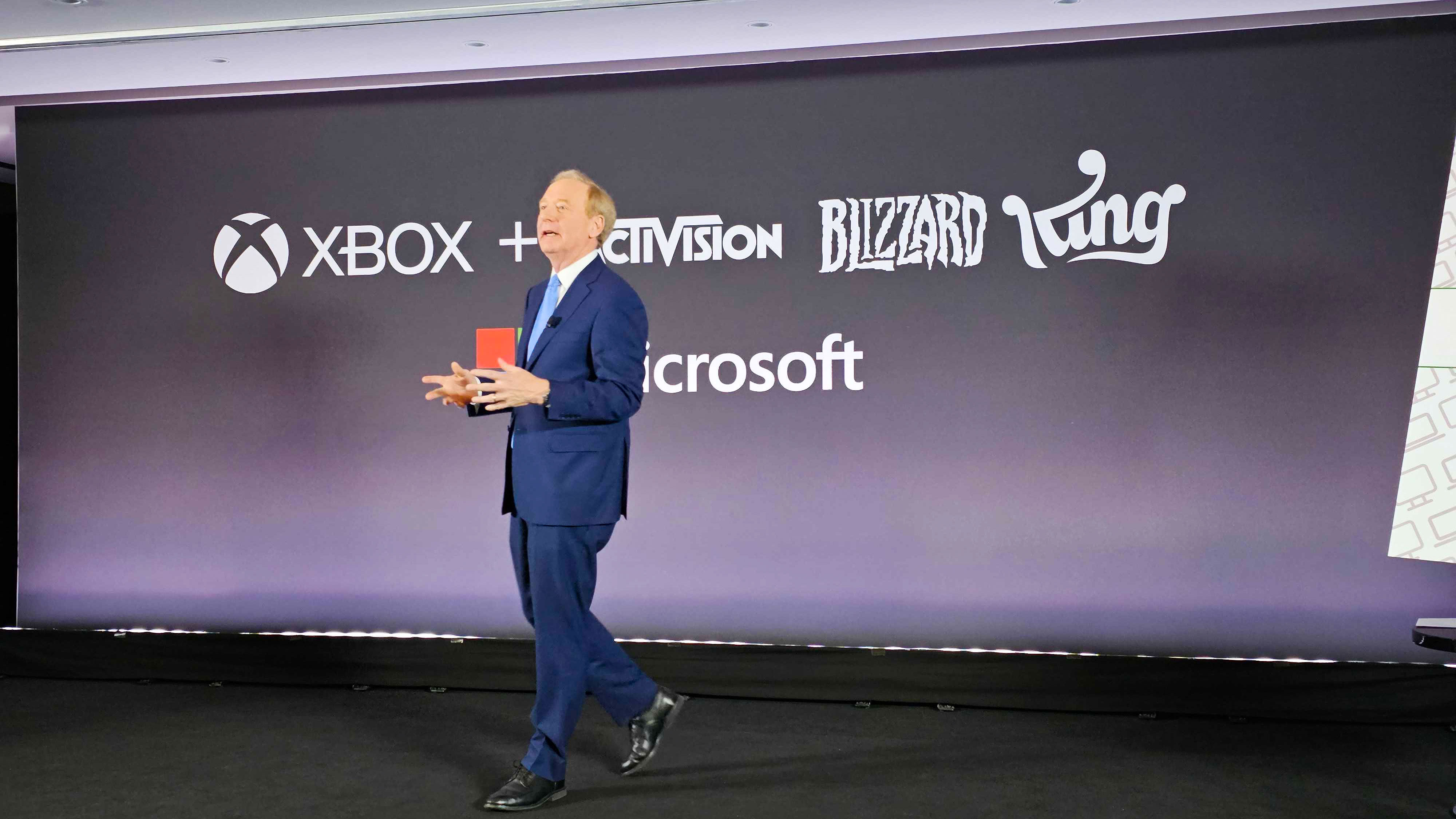
What you need to know
- Microsoft is trying to purchase Activision-Blizzard for $69 billion dollars.
- To clear the deal cleanly, Microsoft needs the approval of the United States, UK, and European Union.
- The United States and European Union have yet to make final decisions, but the UK CMA opted to block the deal this week.
- In comments to press, Microsoft President Brad Smith called into question the UK's viability as a center for tech investment.
- The UK CMA blocked the deal on the basis of "protecting the cloud gaming market," which has less than 10,000 concurrent users in the UK.
- Update: A spokesperson for UK Prime Minister Rishi Sunak says Brad Smith's comments about the UK were "wrong."
Yesterday, the United Kingdom's regulatory body known as the CMA blocked Microsoft's acquisition of Activision-Blizzard, dealing a massive blow to the deal which could see Xbox gain control of Call of Duty, World of Warcraft, and more.
The CMA claims it blocked the deal to protect the "cloud gaming market," which represents roughly 2% of the overall gaming industry footprint according to estimates. Indeed, Microsoft, which the CMA itself says has 60% of the UK cloud gaming market, only has server capacity to provide bandwidth for a minuscule 5,000 customers concurrently. By the CMA's own figures, the deal would impact less than 10,000 people at any given time.
This block comes despite a flurry of 10-year licensing deals Microsoft set up with cloud providers like NVIDIA GeForce Now to ensure that competition would be protected. The CMA's response was that essentially it couldn't trust Microsoft to honor legally binding contracts and that it didn't want to regulate the contracts themselves.
The United Kingdom has been in a near-freefall decline since Brexit, which has seen investment dry up from foreign firms. The UK is also faced with runaway inflation, which will see the economy decline more than sanctions-hit Russia according to IMF estimates. The block on the deal has once again called into question the current establishment's competence, given the CMA's absurd and speculative arguments for blocking a deal that would have benefitted UK consumers. Microsoft planned to put Call of Duty and other games into the $10-per-month subscription service Xbox Game Pass, saving gamers from paying £50 ($60) per game. Microsoft also penned in deals to offer Call of Duty to Nintendo gamers as well, which the CMA also oddly dismissed with claims that the Nintendo Switch wasn't "powerful enough," despite the fact AMD just launched chips for mobile gaming handhelds that have equivalent graphical potency to an Xbox Series S.

UK Prime Minister Rishi Sunak has touted an intent to turn the UK into a European "Silicon Valley," in reference to the region of Northern California which has become a global leader for tech innovation and investment. Activision CEO Bobby Kotick previously said that if the UK sought to block its deal with Microsoft, that it would become a tech investment "Death Valley," in reference to the inhospitable plains of the Mojave Desert. It seems Microsoft President Brad Smith shares Kotick's opinion.
In comments to the BBC, Smith described the block as Microsoft's "darkest day" in the UK in 40 years of trading. He also lamented how the UK has become closed for investment while touting the European Union as a place far easier to conduct business. Smith emphasized that Microsoft will reassess how it invests in the United Kingdom, echoing similar comments from Activision: "It does more than shake our confidence in the future of the opportunity to grow a technology business in Britain than we've ever confronted before."
Update: In response, a spokesperson for the UK Prime Minister Rishi Sunak said that Smith's remarks regarding the UK's viability as a tech business hub were "wrong," and "not borne of the facts." The spokesperson also said that the UK government would engage Microsoft on the issue while reiterating that the CMA is an unelected, independent body separate from the government.
It's perhaps ironic, given that the Conservative Party government in the UK often espouses deregulation as a way of driving investment, only for none of their rhetoric to materialize in reality. As a result of the current Brexit deal, businesses in the UK are mired in mountains of red tape that previously didn't exist, reducing profitability, leading to layoffs and bankruptcies. The difficulties of the UK regulatory environment have led to UK firms like chip maker ARM opting for public listings on the New York stock exchange over London, with other firms apparently lining up to do the same.







